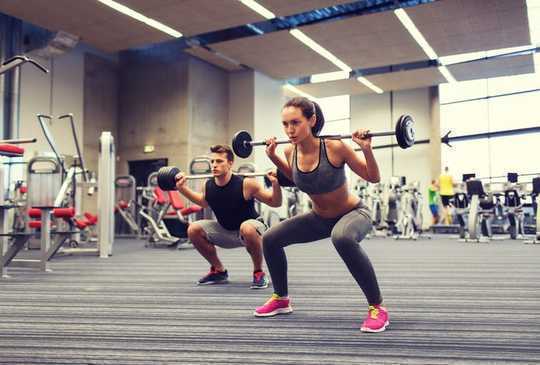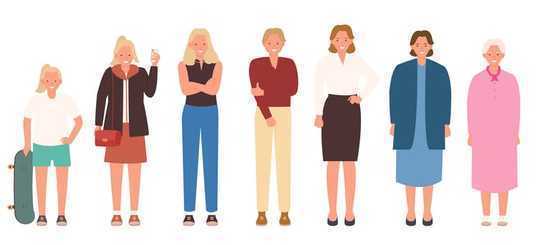While you may be aware that a loss of vision, hearing and memory is a sign of ageing, something that is perhaps not so noticeable is a reduction in height. This apparent shrinking is due to several factors relating to changes in bone, muscles, joints and other tissues in your body. While a certain amount of height loss is a normal part of ageing and unlikely to be associated with any health problems, significant height loss may indicate underlying issues. Understanding what happens to your body as you age is important so you can counteract some of the negative effects of ageing.
As early as your thirties, age-related muscle loss, known scientifically as sarcopenia, can mean you lose muscle mass at a rate of 3-5% each decade. Of particular concern are those muscles in your torso, which are primarily responsible for keeping you in an upright position. A reduction in their ability to maintain your posture can make you look stooped and hence shorter.
Another reason for height loss as you age is your bone health. Bone is an extremely complex connective tissue that can adapt its size and shape in response to mechanical loads. This enables your bone to remodel itself throughout your life.
In your younger years, you go through a growth stage, depositing bone so rapidly that 90% of your peak bone mass is reached in your late teens. This growth is consolidated in your mid-twenties when peak mass is reached.
Get The Latest By Email
Around the age of 35-40, you begin to lose more bone than is generated. Eventually, this loss of bone leads to a condition known as osteoporosis, which is characterised by low bone mass and increased bone fragility. Combined, these factors result in a greater risk of fracture. While the hips and forearms are common sites for the disease, it is most common in the vertebrae (spine) where it has a negative impact on stature.
Also located in the spine and responsible for maintaining your posture are the vertebral discs. These gel-like cushions sit between the vertebrae and act as shock absorbers, helping to keep the back flexible.
When we are young these discs, which are about 80% water, are strong and supple. As you age, the discs gradually compress and flatten. Consequently, the spaces between the vertebrae are reduced. A similar effect is seen in the arches of the foot as you age when the ligaments begin to degenerate. This leads to flat arches, causing you to walk with a more flat-footed style.
Keep your stature
While most height loss is determined by your genes, there are some lifestyle factors you can follow to help maintain your height and, perhaps more importantly, reduce the effects that ageing has on your health and wellbeing.
Regular exercise, especially activities that incorporate some form of weight-bearing, are good for generating bone. While you are never too old to receive some benefit from exercise, research has shown that developing strong bones in the teenage years (when most peak-bone mass is established) offers some protection as you enter older age. This kind of exercise inherently benefits muscle growth too, and so has the potential to protect against both osteoporosis and sarcopenia.
 Weight-bearing exercise is good for bone strength. Syda Productions
Weight-bearing exercise is good for bone strength. Syda Productions
While a healthy balanced diet is essential for general health, foods high in vitamin D and calcium, including almonds, broccoli and kale, also contribute to bone health. Not smoking or drinking alcohol and limiting caffeine consumption also helps.
While a bit of shrinking is a normal part of ageing, it can suggest more serious issues. Ensuring that you maximise bone health and wellbeing throughout your life is vitally important.![]()
About The Author
Adam Hawkey, Associate Professor, School of Sport, Health and Social Sciences, Solent University
This article is republished from The Conversation under a Creative Commons license. Read the original article.
books_health









